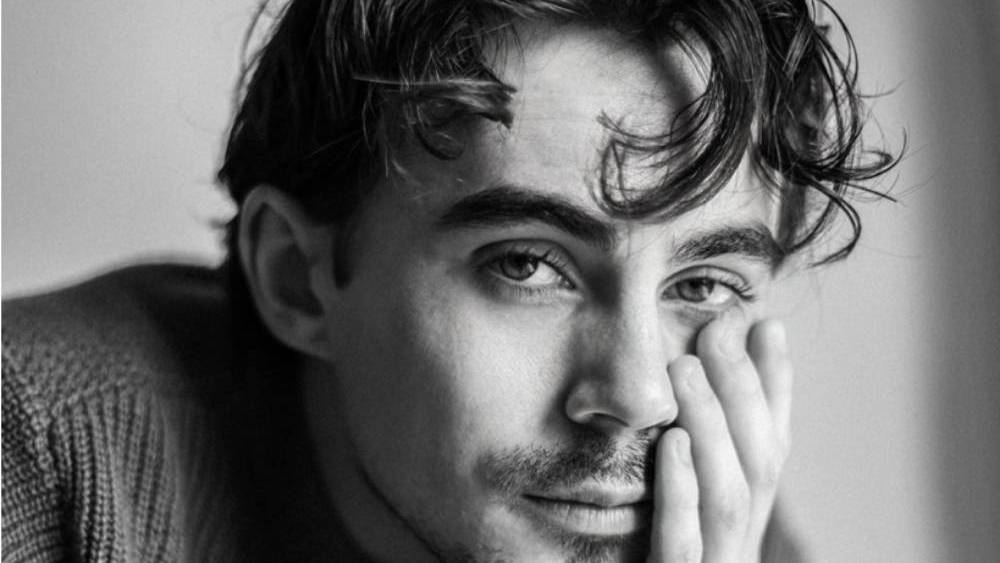Since the United States is not just spinning out of control, it threatens to get the rest of the world with the rest of the time, the Cannes movie pageant is usually a place to play. The films learned with Trump were filmed earlier in the Cannes Film Festival. Movies are psychic, always. But it all guarantees that this year’s Cannes selection (and of course the atmosphere of the game) will trigger a whole new world dysfunction.
But there is another aspect to Cannes. Every year, the match uses itself as a shelter, a Ritzy Oasis, a cinema shelter from the storm. That was the comfortable bourgeoisie of Cannes. Just check out the official poster of this competition. You might want to expect it to be an old movie, nodding in that pleasantly indirect iconic-Nice-Poster approach in the now evolving chaos. However, as the master of the alternative competition, the competitive House of Lords chose a pair of photos from “A Man and A Lady” (1966), with the title character embracing at the seaside – a kind of imaginative and prescient feeling you might say is a bit corrected. “A Man and A Lady” is not even an ideal movie. It's a fake art film, a movie of elevated artist kitsch. However, choosing it for posters is a reminder that Cannes does not need to be at the forefront at any time. In addition, it hopes to lay the best way to make the way with comfort meals.
If you have any questions about this, consider opening the game tonight's movie, “Leave one day (Partir Un Jour).” It's a trivia, never even a little pop phrase that is totally profitable. But, oh, this is intended to wash you in the hot retro glow.
Allows us to rely on the “Disappearing Day” approach to designing as the latest but backward-tilting art room expertise. This is the story of a celebrity chef, Cécile (Juliette Armanet), who relied on her to recognize in every place in Paris because she was once a fixed position for the “Senior Chef” which is where she was a shortlisted with the lobster Bisquesoufflé. However, her mean kitchen vibe echoes Jeremy Allen White's “The Bear”, the first user-friendly ingredient in the film. Second, the film appears to be a musical in 10 minutes, rather than some old-fashioned production numbers, or some novel postmodern factor, but two informal sensual “wise” musicals, while the characters express their ideas in a forbidden annoying way. It's like a French John Carney film, nodding to “The Umbrella of Cherbourg.”
“Walk away one day” has a neat story about Cecil returning to the village where she grew up, her mother and father cooking again (but, fewer orders), and despite this, they spent many years cooking clothes hangers and fries in the truck desk restaurant they owned and operated for years. (Cécile found cooking dinner there.) Nationwide, where everyone thought “Michelin” was the place to refer to tires, Cécile took a break from stock…to stock, because in the opening scene she learned she was pregnant. Dad is her culinary accomplice (Tewfik Jallab), so they are going to open a brand new flagship restaurant, and Cécile has not settled on signature dishes yet.
For some time, it felt like a fascinating state, albeit in a half-attitude approach. Sometimes, I feel like I've seen Nathalie Baye movies from the 80s. Given the feeling of this being the lightly slap-on by the film's director and co-writer, its solo debut feature (mainly for the Cannes opening player), is known as Amélie Bonnin. It is a coincidence to make sure, but it evokes the evocation of one of many French films, developing into a global sense in the order of “man and a lady”, which is the cake of the tempting candy spirit of “walk away the day.”
If it's just a bigger movie! Since Bonnin is a shaky and fluid filmmaker, I went there for a while. I love the informal everyday life in musical numbers – sometimes they are just fragments – just like fruit in plum cakes, just to get back to that fair tone of the semi-documentary drama, which is the home model of French films because of the days of Maurice Pialat. Juliette Armanet is a huge pop star, relatively new to the large display screen, but she is a pure actor, one glance and aura evokes Meryl Streep for many years: a quick, meditative, cautious, cautious, cautious, nervous, neurotic sensationist grabs almost everything.
Cécile returns home to his hometown and suffers a heart attack from a third coronary heart disease, and her passionate mom (Dominique Blanc) no longer needs him to work. However, it's not a lot of battles. However, when Cécile meets Bastien Bouillon and his partner, the sauce thickens, and she is a good friend when she is overdoing her junior year. Still, these jokes are just hanging out and doing previous ingestion events. However, Raphael is as tall and beautiful as his two locks, and he and Cécile enter some kind of vague flirting area. After a while, this proved that this was aimless.
Will Cécile terminate her pregnancy? She announced her plans from the very beginning (we will actually see that there is a toddler that doesn’t fit her high maintenance kitchen lifestyle). But when the film’s drama suggests something, Cecil must develop in a whirlpooling way. Eric Rohmer's mastery is to show that seemingly slight emotional shifts may be a huge choice for the future, and I think that's what Amélie Bonnin is after, but, as an alternative, she made a movie in which the heroine passes the Level A to Level A level. This makes “a day away” a little contradictory. It wants us to be melancholy and longing for a person who is too self-realized to change.

